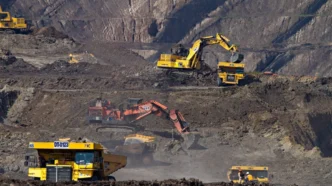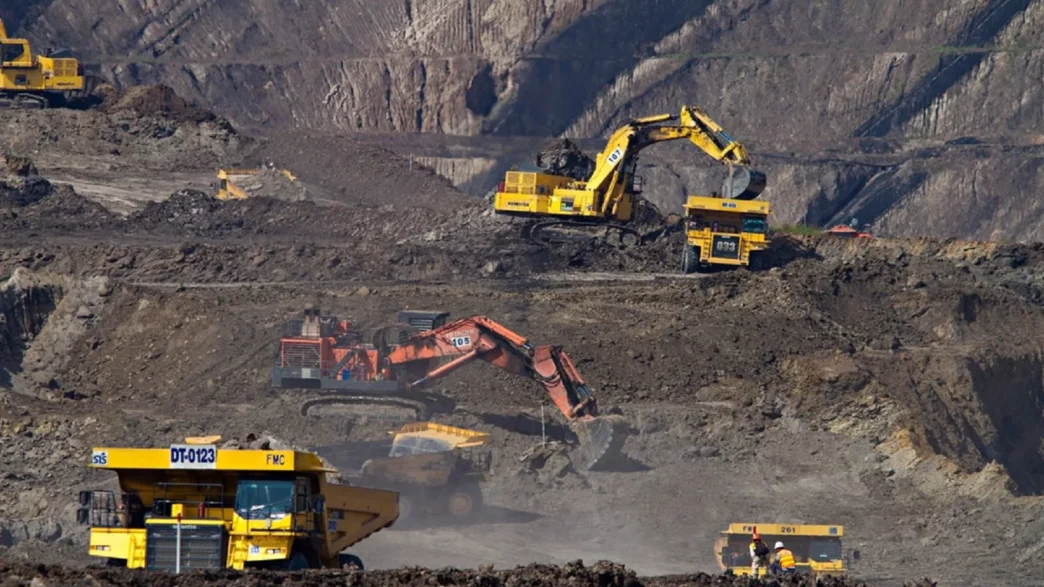The Federal Government of Nigeria has revoked 1,263 mineral titles belonging to mining companies and individuals for failure to pay mandatory annual service fees. This sweeping decision, announced by the Ministry of Solid Minerals Development, marks one of the most decisive regulatory crackdowns in recent years and underscores the government’s determination to reform and sanitize Nigeria’s mining sector.
According to official sources, the revocation exercise was carried out in line with the provisions of the Nigerian Minerals and Mining Act of 2007, which stipulates that holders of mineral licences must pay prescribed service fees annually to retain their rights. The failure of several operators to comply with this statutory requirement prompted the government to take firm action.
This move comes at a time when Nigeria is pushing to diversify its economy away from oil dependence by boosting the solid minerals sector, which has long been underutilized despite the country’s vast mineral deposits. Analysts believe the revocation is intended not only to enforce compliance but also to free up dormant mineral titles for serious investors willing to contribute meaningfully to the nation’s economic growth.
Why the Licences Were Revoked
The Ministry explained that the decision was driven by widespread non-compliance with regulatory obligations. Many licence holders, it was revealed, had held mineral titles for years without paying the required fees or making significant investments in exploration or mining.
The service fee, though relatively modest compared to potential profits from mining activities, is designed to ensure that only committed investors participate in the sector. By failing to pay, companies and individuals effectively signaled a lack of seriousness, leaving vast mineral-rich lands idle and unavailable to genuine operators.
Dr. Dele Alake, Minister of Solid Minerals Development, noted that the revocation exercise was essential to reposition the industry.
“The government cannot continue to allow unserious operators to hold mineral titles indefinitely without fulfilling their obligations. This exercise is about accountability, transparency, and ensuring that Nigeria benefits from its natural resources,” he said.
Legal Backing for the Revocation
The revocation of the 1,263 licences was carried out in accordance with the Nigerian Minerals and Mining Act of 2007 and the accompanying regulations. These laws empower the Minister of Solid Minerals to withdraw licences where holders fail to pay service fees, submit reports, or adhere to environmental and operational guidelines.
Industry stakeholders point out that this is not the first time such an action has been taken. However, the scale of this recent exercise is unprecedented and reflects the government’s resolve to enforce discipline in a sector plagued by speculation, illegal mining, and regulatory breaches.
Categories of Licences Affected
The revoked titles cut across various categories of mineral licences:
- Exploration Licences (ELs): These titles allow holders to search for minerals in designated areas. Many of the revoked ELs had been dormant for years without meaningful exploration activity.
- Mining Leases (MLs): These permits, which authorize the commercial extraction of minerals, were also affected where holders failed to comply with fee payments.
- Quarry Leases (QLs): Given the growing demand for construction materials, several quarry operators lost their rights due to unpaid dues.
- Small-Scale Mining Leases (SSMLs): Targeted at local operators, many of these licences were revoked as their holders failed to meet obligations.
By reclaiming these titles, the government intends to reallocate them to investors ready to comply with regulations and contribute to national development.
Impact on the Mining Sector
The revocation exercise has significant implications for Nigeria’s mining landscape.
1. Opening Opportunities for Serious Investors
The withdrawal of licences from defaulters creates room for credible local and foreign investors to access new opportunities. The government hopes that transparent reallocation of these titles will boost exploration and mining activities across the country.
2. Revenue Generation for Government
By enforcing compliance with service fee payments, the government is sending a strong message that revenue collection in the mining sector will no longer be neglected. This could significantly increase internally generated revenue at a time when Nigeria is grappling with fiscal pressures.
3. Reduction of Speculation and Hoarding
For years, many operators have acquired mineral titles not for genuine mining but for speculation, waiting to sell them at higher prices. The revocation disrupts this practice and ensures that only those ready to mine will hold licences.
4. Boosting Nigeria’s Diversification Agenda
By sanitizing the mining sector, the Federal Government is reinforcing its broader strategy of economic diversification. Effective utilization of mineral resources could contribute to job creation, industrialization, and foreign exchange earnings.
Reactions from Stakeholders
The government’s decision has drawn mixed reactions from stakeholders.
- Industry Associations: Some groups, such as the Miners Association of Nigeria, welcomed the move, describing it as long overdue. They argue that cleaning up the sector will help credible players thrive.
- Affected Operators: Several revoked licence holders expressed shock and frustration, insisting that they were not adequately notified or given enough time to comply. Some are considering legal action against the government.
- Civil Society and Analysts: Advocacy groups have praised the decision as a step toward accountability, but they urge the government to ensure that reallocated licences are not hijacked by political cronies.
A mining consultant, Mr. Chukwuemeka Nwosu, noted:
“This is a wake-up call to investors. If you are serious, comply with the law and develop your sites. The government must also avoid favoritism when reissuing these licences. Transparency is key.”
Nigeria’s Untapped Mineral Wealth
Nigeria is richly endowed with over 40 commercially viable mineral resources, including gold, iron ore, limestone, lead, zinc, coal, bitumen, and lithium. However, the sector contributes less than 1% to the country’s Gross Domestic Product (GDP), largely due to underinvestment, weak regulation, and illegal mining activities.
Experts believe that with the right policies, Nigeria’s mining sector could rival oil and gas in revenue generation. The revocation of dormant licences is therefore seen as part of a larger reform agenda aimed at unlocking the sector’s vast potential.
Challenges Ahead
Despite the bold step taken by the Federal Government, challenges remain in the mining sector.
- Illegal Mining: The proliferation of illegal miners continues to rob Nigeria of revenue while causing environmental degradation.
- Infrastructure Deficits: Poor roads, inadequate power supply, and lack of rail links make mining operations costly and unattractive.
- Security Concerns: In some mineral-rich states, insecurity hampers investment and exploration activities.
- Transparency Issues: Stakeholders remain wary of how reallocated licences will be managed, fearing potential corruption and favoritism.
Unless these challenges are addressed, the revocation exercise alone may not deliver the expected transformation.
The Way Forward
For Nigeria’s mining sector to thrive after this revocation, experts recommend the following steps:
- Transparent Reallocation: The government must ensure that new licence awards are transparent, competitive, and based on merit.
- Strict Enforcement: Regulators should continue to enforce compliance, ensuring that licence holders pay dues and develop their sites.
- Infrastructure Development: Investment in mining corridors, transport systems, and power infrastructure will make the sector more attractive.
- Security Enhancements: Securing mining areas will encourage foreign direct investment and reduce illegal operations.
- Capacity Building: Training and empowering local miners will enable Nigerians to play a bigger role in the industry.
Conclusion
The Federal Government’s revocation of 1,263 mineral licences for unpaid fees is a landmark decision in Nigeria’s quest to sanitize and reposition its mining sector. While it has sparked controversy among affected operators, the move has been widely praised as necessary to eliminate speculation, enforce accountability, and open doors for genuine investors.
With Nigeria’s vast mineral wealth largely untapped, the success of this initiative will depend on the government’s ability to transparently reallocate licences, address systemic challenges, and create an enabling environment for mining to flourish.
If effectively implemented, the revocation could become a turning point, signaling that the era of dormant licences and regulatory laxity is over. For investors, it is a reminder that the future of mining in Nigeria belongs only to those willing to comply, invest, and contribute to national development.














